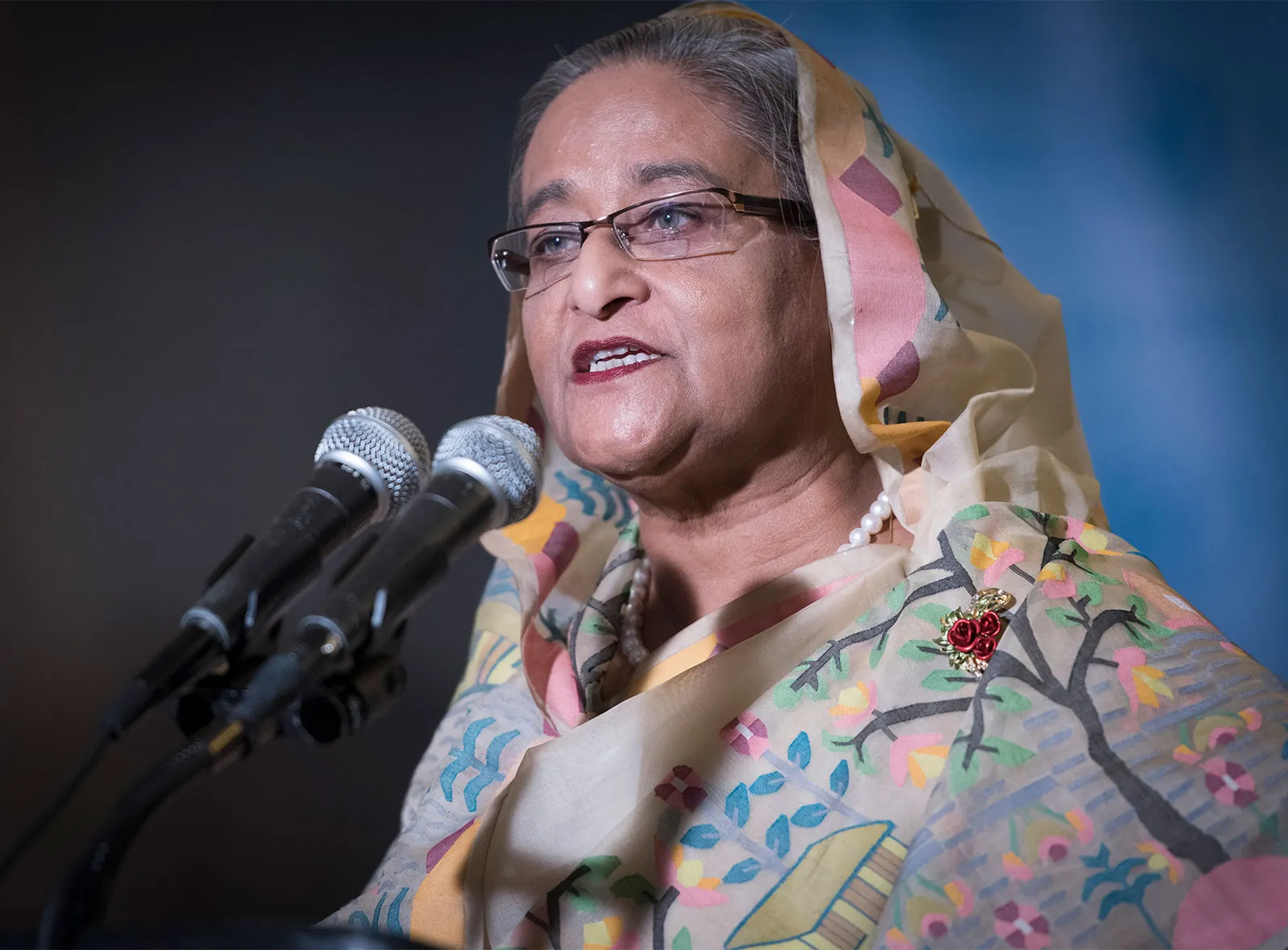Sheikh Hasina Accuses U.S. of Involvement in Ouster

In what is being described as her first public statement since stepping down and leaving the country on August 5, former Prime Minister Sheikh Hasina has alleged that foreign powers, particularly the United States, played a role in her removal from office.
According to an article published by Indian news outlet The Print, which claims to have seen the communication addressed to Hasina’s Awami League supporters, Hasina suggested that she could have remained in power if she had agreed to relinquish control of St Martin and the Bay of Bengal to the US. India’s Economic Times also reported on this message, though The Daily Star has not independently verified these claims.
Hasina’s government reportedly experienced strained relations with the US for several years. Ahead of the January elections earlier this year, she mentioned that “a white man” had offered her a secure return to power in exchange for granting the US an airbase. In her message, she also cautioned the newly formed interim government not to fall under the influence of such foreign powers.
The new interim government, led by Nobel Laureate Muhammad Yunus, was sworn in on Thursday night, three days after Hasina’s departure from Bangladesh. Hasina stated that she resigned to avoid further bloodshed, saying, “They wanted to come to power over the bodies of students; I did not allow it. I stepped down with power.”
She added that her resignation prevented further loss of life and destruction of property, acknowledging that if she had remained in the country, the situation could have escalated further. Hasina is also expected to address the media in India next week, according to The Print.
Sheikh Hasina resigned as prime minister and fled Bangladesh on August 5, following a student-led protest that escalated into a mass uprising against her Awami League government. The unrest resulted in the deaths of over 400 people in the three weeks leading up to her resignation, with many fatalities attributed to police actions and violence by Awami League activists.
In her message to supporters and party members, Hasina vowed to return to Bangladesh, despite accepting her defeat. She expressed her intention to return soon, stating, “The defeat is mine, but the victory belongs to the people of Bangladesh.”
Hasina emphasized that she stepped down voluntarily, out of respect for the people’s wishes, and encouraged her supporters not to lose hope, affirming that the Awami League has rebounded from setbacks in the past. She also addressed allegations that her words had been misrepresented, particularly regarding a controversial term, “Razakars,” which she claimed had been distorted and used against her by certain groups.
The term “Razakar” holds significant negative connotations in Bangladesh, as it refers to those who collaborated with the Pakistan Army during the 1971 war for independence.







